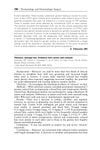 47 citations,
January 2015 in “Dermatology”
47 citations,
January 2015 in “Dermatology” The best way to treat acne is to prevent healthy skin glands from turning into acne lesions by controlling the triggers early on.
 21 citations,
July 2014 in “Clinics in Dermatology”
21 citations,
July 2014 in “Clinics in Dermatology” Hormonal contraceptives can help treat acne by affecting sebum production and androgen levels.
 10 citations,
January 2017 in “Expert Opinion on Pharmacotherapy”
10 citations,
January 2017 in “Expert Opinion on Pharmacotherapy” The conclusion is that more research is needed to better understand and treat adult acne, and that patient education and simple treatment plans are important for better results.
 1 citations,
September 2020 in “Actas Dermo-Sifiliográficas”
1 citations,
September 2020 in “Actas Dermo-Sifiliográficas”  3 citations,
August 2015 in “Diabetes and Metabolic Syndrome: Clinical Research and Reviews”
3 citations,
August 2015 in “Diabetes and Metabolic Syndrome: Clinical Research and Reviews” Married women with type 2 diabetes had a surprisingly low infertility rate, suggesting type 2 diabetes and PCOS may be different conditions.
 13 citations,
December 2020 in “Dermatologic Therapy”
13 citations,
December 2020 in “Dermatologic Therapy” Sebaceous glands in our skin, developing during pregnancy and active in puberty, produce sebum for skin lubrication, temperature control, and fighting germs, also help in hormone regulation, and their dysfunction can cause conditions like acne and hair loss.
2 citations,
October 2021 in “Journal of Cosmetic Dermatology” Finasteride is more effective and satisfactory than montelukast for treating moderate acne in women.
 April 2018 in “Journal of Investigative Dermatology”
April 2018 in “Journal of Investigative Dermatology” Nicotinic acid reduces excessive oil production in skin cells by activating a specific receptor, which could help treat acne.
 January 2016 in “Journal of the turkish academy of dermatology”
January 2016 in “Journal of the turkish academy of dermatology” Acne was the most common skin problem in kids, with other conditions like warts and eczema also frequent, varying by age and gender.
 September 2021 in “CRC Press eBooks”
September 2021 in “CRC Press eBooks” Acne keloidalis nuchae is a hair loss condition affecting men of African descent, causing scar-like bumps on the scalp and neck.
 January 2011 in “Yearbook of Dermatology and Dermatologic Surgery”
January 2011 in “Yearbook of Dermatology and Dermatologic Surgery” Hair relaxers are linked to reduced cystine levels and potential hair damage.
466 citations,
June 2009 in “Experimental dermatology” We now understand more about what causes acne and this could lead to better, more personalized treatments.
194 citations,
October 2018 in “Microbiome” Acne is linked to complex skin microbe interactions, and new findings suggest microbiome-based treatments could be effective.
 152 citations,
December 2007 in “Gender Medicine”
152 citations,
December 2007 in “Gender Medicine” Male and female skin differ due to hormones, affecting conditions like hair loss, acne, and skin cancer, and suggesting a need for gender-specific treatments.
 82 citations,
January 2000 in “Hormone Research in Paediatrics”
82 citations,
January 2000 in “Hormone Research in Paediatrics” DHEA stimulates skin oil glands and could help postmenopausal women, with potential for acne and excessive hair growth treatments.
 67 citations,
February 2010 in “Acta Obstetricia et Gynecologica Scandinavica”
67 citations,
February 2010 in “Acta Obstetricia et Gynecologica Scandinavica” Hirsutism is a strong sign of high male hormones and metabolic problems in women with PCOS, but acne and hair loss are not.
 60 citations,
October 2014 in “Journal of the American Academy of Dermatology”
60 citations,
October 2014 in “Journal of the American Academy of Dermatology” Dermatologists play a key role in treating skin symptoms of PCOS like dark patches, excess hair, acne, and hair loss.
 53 citations,
December 2015 in “JAMA Dermatology”
53 citations,
December 2015 in “JAMA Dermatology” Women with PCOS often have more body hair, acne, and skin darkening, and these signs are linked to metabolic issues like insulin resistance and high cholesterol.
52 citations,
January 2017 in “Dermatology” Swiss experts recommend specific guidelines for diagnosing and treating hidradenitis suppurativa to improve patient care.
 49 citations,
August 2007 in “Dermatologic surgery”
49 citations,
August 2007 in “Dermatologic surgery” New treatments for acne scars are safer and more effective because we understand the causes better.
 48 citations,
February 2014 in “Fertility and Sterility”
48 citations,
February 2014 in “Fertility and Sterility” Women with PCOS often have hair loss, which is linked to acne or excess body hair but not to worse hormone or metabolic issues.
 45 citations,
January 1998 in “Dermatology”
45 citations,
January 1998 in “Dermatology” Some skin conditions look like acne but are caused by drugs, and they usually get better when the drug is stopped.
 32 citations,
November 1996 in “International Journal of Dermatology”
32 citations,
November 1996 in “International Journal of Dermatology” Antiandrogens can help treat skin conditions like acne and excessive hair in women when used carefully.
 25 citations,
May 2003 in “Expert Opinion on Therapeutic Patents”
25 citations,
May 2003 in “Expert Opinion on Therapeutic Patents” Steroid Sulfatase inhibitors show promise in treating hormone-dependent disorders like cancers, hair loss, and acne, with 667COUMATE being a potential candidate for breast cancer treatment trials.
 18 citations,
July 2018 in “Turk Pediatri Arsivi-turkish Archives of Pediatrics”
18 citations,
July 2018 in “Turk Pediatri Arsivi-turkish Archives of Pediatrics” Skin diseases in Turkish children vary by age and gender, with infections, eczema, acne, and allergies most common.
 17 citations,
September 2017 in “Journal of Cosmetic Dermatology”
17 citations,
September 2017 in “Journal of Cosmetic Dermatology” Women with PCOS in North China often have hirsutism and acne, with hirsutism linked to metabolic issues.
 10 citations,
May 2015 in “International Journal of Women's Dermatology”
10 citations,
May 2015 in “International Journal of Women's Dermatology” New treatments for skin and hair disorders in women of color address unique biological differences and include specific acne medications, sunscreens, skin lighteners, and hair care adjustments.
 7 citations,
October 2018 in “Dermatology practical & conceptual”
7 citations,
October 2018 in “Dermatology practical & conceptual” Topical oxygen therapy may improve treatments for hair loss, acne, and chronic skin diseases with minimal side effects.
 4 citations,
October 1988 in “Clinics in Dermatology”
4 citations,
October 1988 in “Clinics in Dermatology” Dihydrotestosterone (DHT) is crucial for conditions like male-pattern baldness and acne, and measuring a byproduct, androstanediol glucuronide, is a better way to assess DHT's effects than DHT blood levels.
 3 citations,
March 2020 in “Dermatology Research and Practice”
3 citations,
March 2020 in “Dermatology Research and Practice” Tracnil™, a mix of myo-inositol, folic acid, and vitamin D3, safely reduced acne, improved excessive hair growth, and fixed irregular periods in overweight women with PCOS.


























